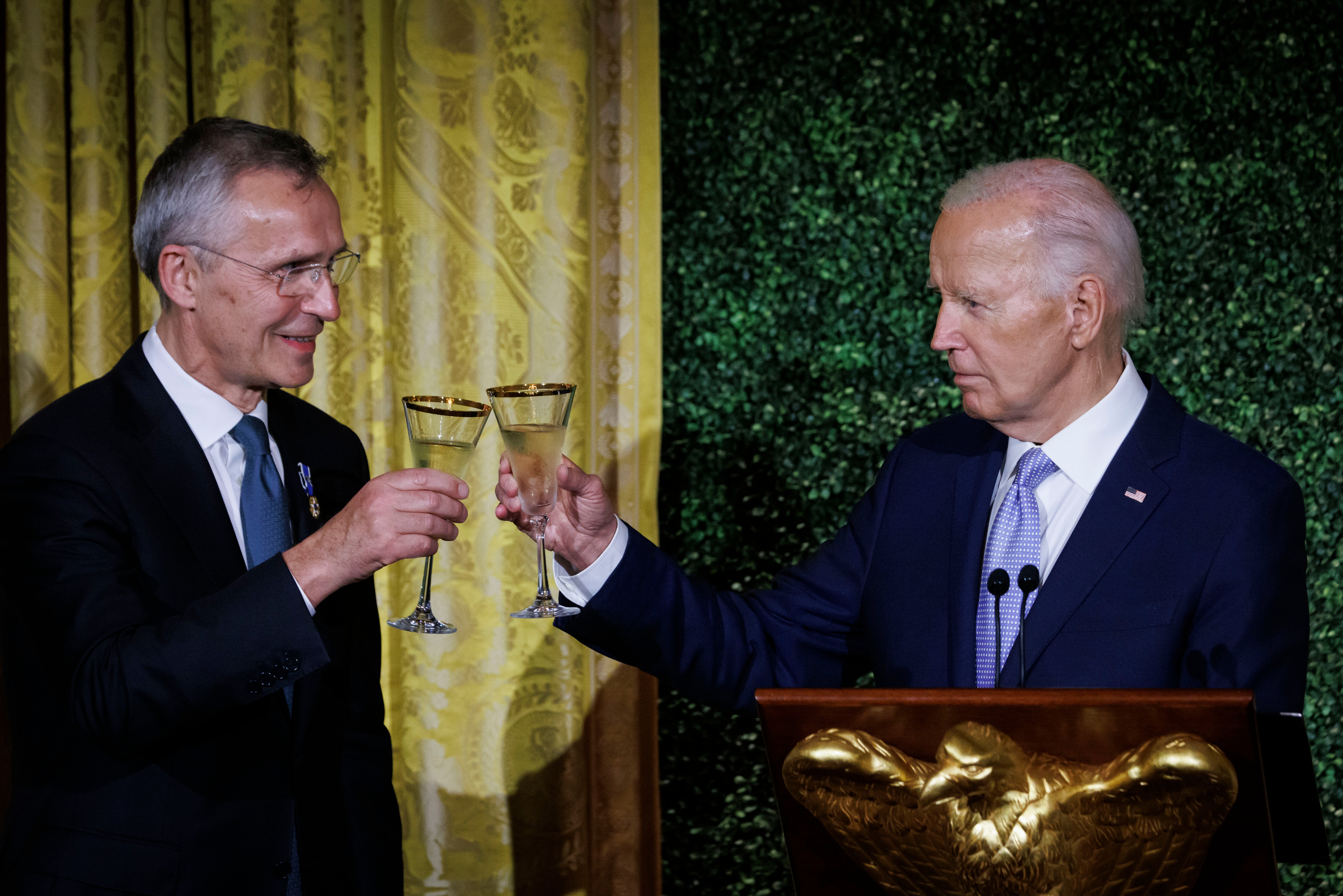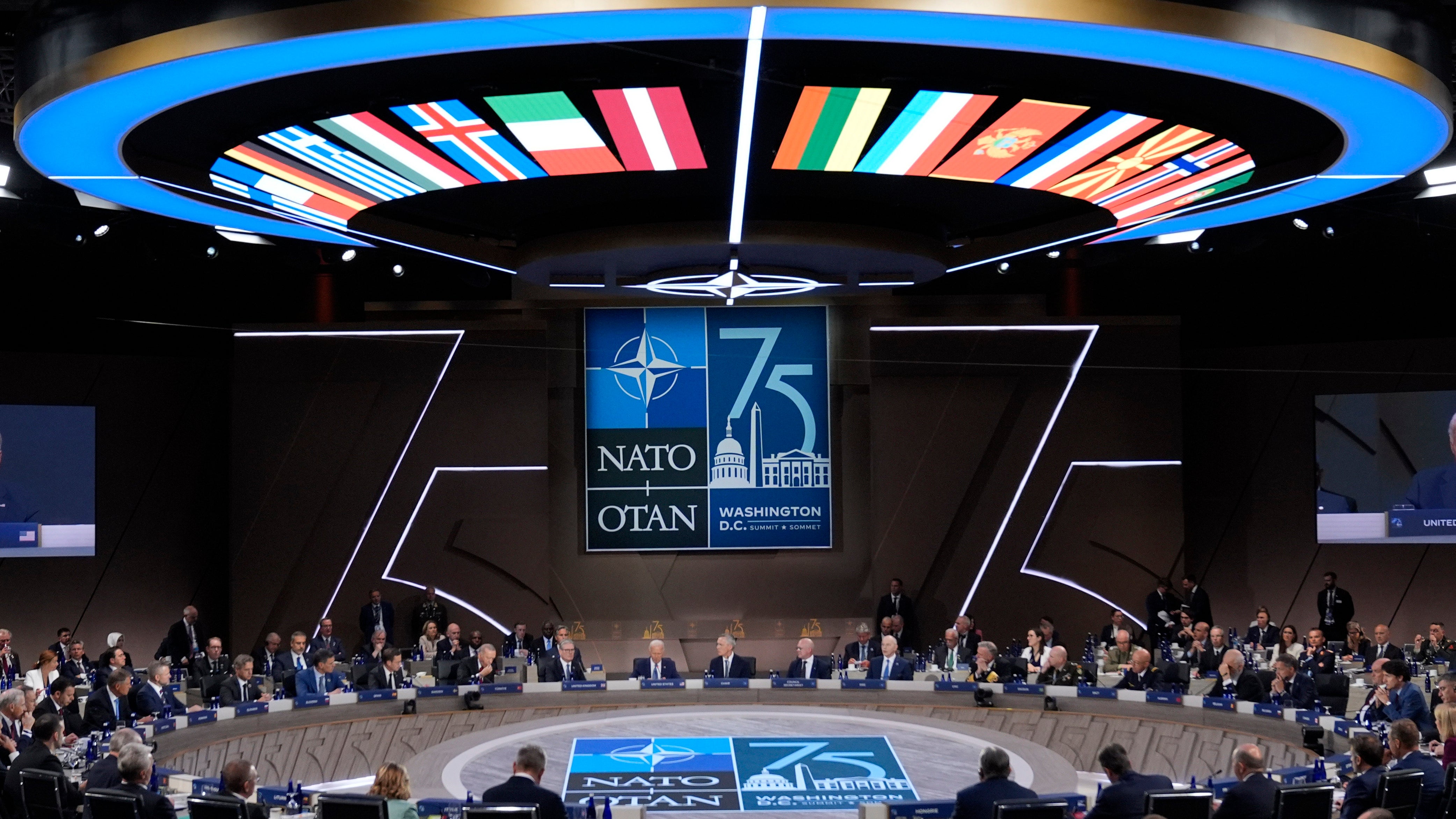Hungary will not support Nato becoming an ‘anti-China’ bloc
It comes after Nato issued its strongest ever condemnation of China as a ‘decisive enabler’ of Putin’s war in Ukraine
Nato must not become an “anti-China” bloc amid rising tensions between the Western alliance and Beijing, Hungary has warned.
Hungarian foreign minister Peter Szijjarto said Nato should avoid tension with China after it condemned Beijing for “enabling” Vladimir Putin’s invasion of Ukraine.
It comes after Hungary’s prime minister Viktor Orban - who has consistently delayed EU military aid to Ukraine - made a surprise visit to Beijing after similar trips to Moscow and Kyiv to discuss an immediate ceasefire.
“Nato is a defence alliance. We cannot organise it into an anti-China bloc,” Mr Szijjarto said when asked about Nato’s presence in the Indo-Pacific.
On Thursday, China accused Nato of smearing the country after the organisation said Beijing’s regime was a “decisive enabler” of Mr Putin’s war in Ukraine.

“Nato keeps playing up the interlink between Europe’s security and the security in Asia-Pacific. We urge it to stay within its role as a regional defensive organisation in the north Atlantic,” Beijing said.
“Nato should not become the disrupter of peace and stability in the Asia-Pacific or a tool used by certain great powers to maintain hegemony.”
The heated rhetoric comes as Japan, South Korea, Australia and New Zealand joined the Nato summit, a practice that started after Russia’s full-scale assault on Ukraine in 2022.
In response to the growing regional power of the People’s Liberation Army, US allies in Asia, including Japan and the Philippines, have stepped up joint planning, exercises and weapons deployments.
Chinese military officials have previously denounced Washington’s efforts to strengthen ties with its allies in the region as a plot to create an “Asian Nato”.

This week, the Chinese military also began joint military drills in Belarus, an ally of Russia, close to the border of Nato state Poland.
The joint military exercises by two of Russia’s most important allies come after Belarus became the 10th member of the China-led Shanghai Cooperation Organisation (SCO) during its 24th meeting of heads of council in Astana, Kazakhstan.
Belarus’s government said the drills “will allow the laying of a foundation for further development of Belarusian-Chinese relations in the field of joint training of troops”.
Beijing described the drills as “anti-terrorist training” and said the drills were according to “an annual plan and consensus”.
In May, the US also sanctioned nearly 300 companies and individuals from China, Russia, and several other countries for allegedly supporting Russia’s defence industry and helping it evade American sanctions over the war in Ukraine.
Join our commenting forum
Join thought-provoking conversations, follow other Independent readers and see their replies
Comments
Bookmark popover
Removed from bookmarks